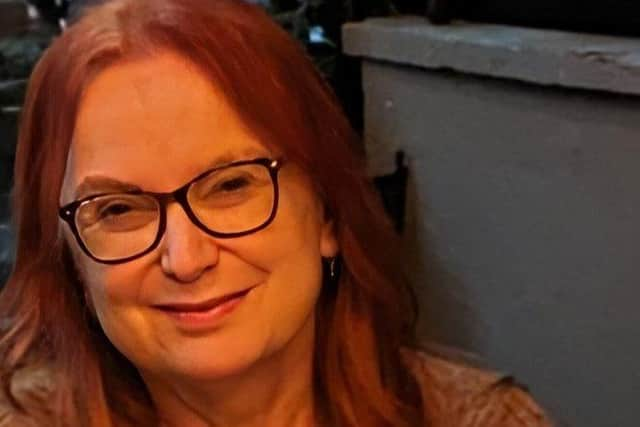International Women's Day: “Embrace our community’s multilingual culture – and we all benefit”
and live on Freeview channel 276
Renata is responsible for the Interpreting and Translation Services at Nottingham University Hospitals NHS Trust and has a passion for trying to ensure every patient at Nottingham hospitals has access to an interpreter.
The service offers help in more than 55 languages – from Arabic to Vietnamese – with face-to-face interpreting, telephone interpreting, and written translation.
Advertisement
Hide AdAdvertisement
Hide AdAnd much of the support comes from volunteers from across the community.


“NUH and Nottingham City are so multi-cultural and multi-lingual,” said Renata, a qualified interpreter. “And that offers such an enormous, invisible human resource. So I thought why not see if there are people who are interested, have the language skills and have a passion for it, and would like to get some experience at the Trust, help their fellow nationals in the UK, and get some qualifications.”
Renata worked with the International School of Linguists to create a training programme for anyone with a passion for languages who wants to help improve patient experience – and says there are real benefits to getting involved.
“I am passionate about giving people the chance to use their skills to help shape their lives in their new, adopted country - it is a tough ride! Linguistic skills allow people to offer meaningful help and offer them the opportunity to build a career for themselves.”
Advertisement
Hide AdAdvertisement
Hide AdIn-house and community volunteer interpreters and 85 freelance interpreters at NUH now support around 25,000 bookings a year. Renata stressed the importance of trying to overcome the variety of challenges faced by non-English and Limited English Proficiency (LEP) speakers in medical settings.
Volunteers are given basic training at NUH and can also be supported to become a qualified community interpreter.
One person who has had a hugely rewarding experience volunteering as an interpreter at the hospitals is John Cipko.
Born in Nottingham to Polish parents, John Cipko grew up speaking both English and Polish – and became a volunteer in 2014 after taking early retirement from his 32-year NHS career as a biomedical scientist.
Advertisement
Hide AdAdvertisement
Hide AdJohn volunteered 770 hours in his first year – gaining such a glowing reputation that he quickly moved on to paid, freelance employment at NUH.
He said: “When I decided to retire I wasn’t sure what to do with my time. But someone suggested I could use my language skills to help people – and that’s how I ended up getting involved with the interpreting and translation service.
“I really enjoy the work that I do. The satisfying thing is feeling like I’ve helped people, and getting thanked not just by the client but also the doctors and consultants. They often tell me that without my help they would have struggled to help the patient.
“If you’re a young person looking to pursue a career in languages it’s a great way to get experience; or if, like me, you’ve retired but still want to keep busy, it’s a very fulfilling way to help others.”
Advertisement
Hide AdAdvertisement
Hide AdRenata is passionate about inspiring more people who can speak another language to help the seldom-heard Nottingham communities.
“By embracing multilingual culture, making space and time for non-English, LEP speakers, and Deaf and hard-of-hearing people, we are not only practising inclusivity, we are observing and experiencing humanity in all the drama and complex beauty.”
If you’d like to find out more about interpreting and translation opportunities at NUH, please contact [email protected]